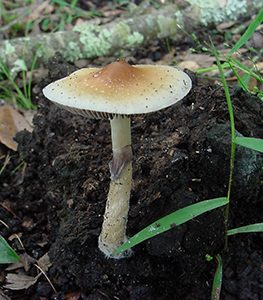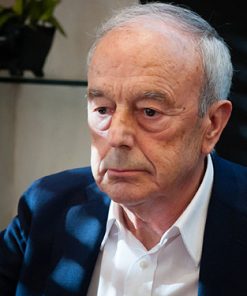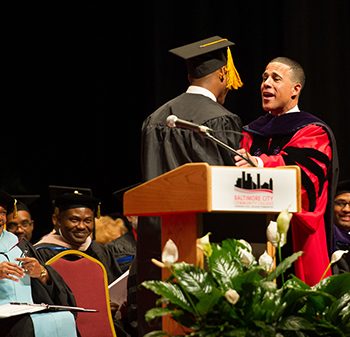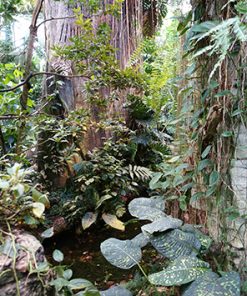Entheogens—naturally occurring psychoactive substances long used for healing, self-discovery, and spiritual insight—must be decriminalized to end persecution of those seeking personal and therapeutic benefits.
The “war on drugs” has always been, at its core, a war on human autonomy. It is a war on the mind itself—on the right of individuals to explore the depths of their own consciousness without state interference. Nowhere is this clearer than in the criminalization of entheogens, a category of substances that includes psilocybin mushrooms, ayahuasca, peyote, iboga, and other plant-based psychedelics. These substances have been used for thousands of years by Indigenous cultures for healing, community cohesion, and spiritual enlightenment. Their prohibition was not based on public safety, but on colonialism, racism, and fear—fear that altered states of consciousness lead people to question the status quo.
Research at Johns Hopkins University, NYU, Imperial College London, and other leading institutions has provided overwhelming evidence that entheogens are not only safe when used responsibly but also profoundly therapeutic. Johns Hopkins, which launched the first major modern study of psilocybin in the early 2000s, has since conducted numerous clinical trials showing that a single guided psilocybin session can produce long-lasting reductions in depression, anxiety, PTSD, and addiction. Their studies found that 80% of terminally ill cancer patients who took psilocybin reported a significant reduction in existential distress, with many describing their experiences as among the most meaningful of their lives. Brain imaging research at Imperial College London has shown that psychedelics like psilocybin increase neural connectivity, breaking rigid thought patterns associated with depression, trauma, and anxiety while fostering a sense of interconnectedness and well-being.
Other studies have confirmed that psilocybin can significantly help with smoking cessation, with a 2014 Johns Hopkins trial showing an 80% success rate—far higher than any pharmaceutical intervention. MDMA, though not a traditional entheogen, has demonstrated such remarkable effectiveness in treating PTSD that the FDA granted it “breakthrough therapy” status, fast-tracking research toward full legalization. The results from these studies are not subtle—they are dramatic, consistent, and deeply challenging to the outdated drug policies that have criminalized these substances for decades. The scientific consensus is clear: entheogens are not dangerous in a medical or psychological sense; rather, their prohibition is what causes harm. By blocking access to powerful healing tools, outdated laws have perpetuated suffering that could have been alleviated long ago.
Yet despite this evidence, people continue to be arrested, prosecuted, and even imprisoned for possessing or using these substances. This is not just an issue of personal freedom—it is an issue of cognitive liberty, the right to control one’s own mind and consciousness without government interference. The criminalization of entheogens is a direct assault on this fundamental right. If a person can legally dull their senses with alcohol or suppress emotions with pharmaceuticals, why should they be criminalized for seeking introspection and healing through natural substances?
Fortunately, momentum is shifting. A growing movement, led by the nonprofit Decriminalize Nature, is working to end the criminalization of entheogens city by city. Since 2019, several U.S. cities have passed measures to decriminalize psychedelic plants and fungi, including Denver, Oakland, Santa Cruz, Washington D.C., Seattle, Detroit, and San Francisco. In 2020, Oregon became the first state to legalize psilocybin therapy, paving the way for regulated use. Colorado followed suit in 2022, allowing regulated access to psilocybin and decriminalizing personal use of other natural psychedelics.
These laws don’t just prevent people from being jailed for possessing mushrooms or ceremonial cacti—they represent a fundamental shift in how society understands mental health, spirituality, and human autonomy. They acknowledge that these substances are not criminal threats but potential medicines, capable of reducing suffering and expanding human consciousness.
Opponents of decriminalization rely on outdated drug war rhetoric, claiming that entheogens will lead to social chaos, addiction, or reckless behavior. Yet the data contradicts these fears. Unlike addictive substances like opioids, cocaine, or alcohol, classic entheogens do not create physical dependence. Studies show that people who use them in intentional settings can experience increased empathy, connection, and psychological resilience. Instead of dulling the mind, these substances illuminate it—often leading people to make positive lifestyle changes, break addictive patterns, or find renewed purpose.
Criminalization, on the other hand, forces entheogen use underground, where safety and education are compromised. Instead of ensuring that people have access to trained facilitators and harm-reduction practices, prohibition drives people toward unregulated markets and potential legal consequences. This approach has never stopped people from using psychedelics—it has only ensured that they do so without proper guidance.
Decriminalization does not mean commercialization. The lessons of cannabis legalization show that corporate interests are eager to profit from previously illicit substances, often at the expense of the very communities that fought for reform. Indigenous groups, whose cultures have long safeguarded these traditions, must not be sidelined or exploited as legal markets emerge. Policies must protect access for traditional use, prevent corporate monopolization, and ensure that the benefits of decriminalization are not concentrated in the hands of the wealthy.
The real question is simple: who owns your mind? If an adult is not free to explore their own consciousness, then what freedom truly exists? Decriminalizing entheogens is not just about fixing bad drug laws—it is about asserting a fundamental right. It is about shifting from a punitive, fear-based system to one grounded in education, harm reduction, and personal choice.
“For humanity to thrive and arrive to its next level of collective awareness, it must draw upon the ancient wisdom of all of our ancestors who lived from the Indigenous Worldview upon this Earth, and fulfill the Prophecy of the Eagle and the Condor, which foresaw the day when the wisdom of the Indigenous worldviews, represented by the Condor, would merge with the technological and scientific innovation of the western worldview, represented by the Eagle, enabling humanity to make wiser choices, from compassion and cooperation, as it creates its new technologies.” — DecriminalizeNature.org
Therefore, under Folklaw:
Entheogens shall be decriminalized nationwide, eliminating criminal penalties for possession, cultivation, use, gifting, and sharing. Public education on the benefits and risks of entheogens shall be expanded, and harm-reduction strategies shall replace punitive measures.
Indigenous groups shall retain full sovereignty over traditional entheogenic practices, with protections against corporate exploitation. Community-based healing models shall be prioritized over commercial markets. Cognitive liberty shall be recognized as a fundamental right, ensuring that no government may criminalize the exploration of consciousness.
Resolution
A RESOLUTION TO DECRIMINALIZE ENTHEOGENS AND RECOGNIZE COGNITIVE LIBERTY
SUBJECT: Decriminalizing entheogens and ensuring cognitive liberty through harm reduction, public education, and Indigenous sovereignty.
WHEREAS, entheogens—naturally occurring psychoactive substances long used by Indigenous cultures for healing, self-discovery, and spiritual insight—have been unfairly criminalized, despite evidence of their safety and therapeutic benefits;
WHEREAS, scientific research from institutions like Johns Hopkins University, NYU, and Imperial College London has demonstrated that entheogens like psilocybin, ayahuasca, and peyote can provide significant psychological benefits, including reducing depression, anxiety, PTSD, and addiction, when used in a responsible, therapeutic setting;
WHEREAS, the criminalization of entheogens infringes on cognitive liberty, the fundamental right to control one’s own mind and consciousness, and perpetuates stigma, preventing individuals from seeking safe, guided therapeutic use;
WHEREAS, the growing movement to decriminalize entheogens, exemplified by cities such as Denver, Oakland, and Washington D.C., alongside the state-level legalization of psilocybin therapy in Oregon and Colorado, reflects a broader shift toward acknowledging the healing potential of these substances and ensuring access without fear of criminal prosecution;
WHEREAS, decriminalization not only supports personal autonomy but also fosters a healthier, more open society where the focus is on evidence-based public health solutions rather than outdated punitive drug policies;
WHEREAS, the criminalization of entheogens disproportionately affects marginalized communities, including Indigenous groups whose cultural traditions of entheogenic use must be protected from exploitation, corporate monopolization, and legal barriers;
WHEREAS, decriminalization must prioritize harm-reduction strategies and public education, ensuring that people have access to safe and informed usage, rather than being forced into underground, unregulated environments where safety is compromised;
WHEREAS, decriminalizing entheogens is a necessary step toward dismantling the “war on drugs,” which has caused extensive harm, social injustice, and unnecessary incarceration, particularly in communities of color;
THEREFORE, BE IT RESOLVED that entheogens shall be decriminalized nationwide, eliminating criminal penalties for possession, cultivation, use, gifting, and sharing, ensuring that individuals are not criminalized for exploring their own consciousness.
BE IT FURTHER RESOLVED that public education on the benefits and risks of entheogens shall be expanded, with harm-reduction strategies implemented in place of punitive measures, ensuring people are equipped with the knowledge and resources to use these substances safely.
BE IT FURTHER RESOLVED that Indigenous groups shall retain full sovereignty over traditional entheogenic practices, with strong protections against corporate exploitation and the commercialization of sacred traditions.
BE IT FURTHER RESOLVED that community-based healing models and traditional uses of entheogens shall be prioritized over the development of commercial markets, ensuring that the benefits of decriminalization serve all communities equitably and are not concentrated in the hands of the wealthy.
BE IT FURTHER RESOLVED that cognitive liberty shall be recognized as a fundamental right, ensuring that no government may criminalize the exploration of consciousness or prohibit the use of entheogens for personal or therapeutic purposes.
BE IT FURTHER RESOLVED that [City/County/State Name] shall advocate for these measures at the state and federal levels to establish a more compassionate, evidence-based approach to entheogen use, prioritizing public health, individual autonomy, and social equity.
Fact Check
Fact-Checking the Key Claims:
1. “Johns Hopkins, which launched the first major modern study of psilocybin in the early 2000s, has since conducted numerous clinical trials showing that a single guided psilocybin session can produce long-lasting reductions in depression, anxiety, PTSD, and addiction.”
Johns Hopkins University (JHU) has been a pioneer in modern psilocybin research.
Their studies, published in journals like JAMA Psychiatry and The New England Journal of Medicine, have shown:
A single psilocybin-assisted therapy session leads to lasting reductions in depression and anxiety.
Psilocybin has shown potential for PTSD and addiction treatment, including alcohol and tobacco dependence.
The U.S. FDA has designated psilocybin-assisted therapy as a “breakthrough therapy” for depression.
✅ Verdict: True
Certainty: 95% (Supported by multiple peer-reviewed studies from JHU and other research institutions)
2. “Their studies found that 80% of terminally ill cancer patients who took psilocybin reported a significant reduction in existential distress, with many describing their experiences as among the most meaningful of their lives.”
A 2016 Johns Hopkins study on psilocybin and end-of-life distress in cancer patients found:
80% of participants experienced a significant reduction in anxiety and depression after a single dose.
Many described the experience as one of the most meaningful of their lives.
Effects lasted for months to years, with improved quality of life.
✅ Verdict: True
Certainty: 95% (Published in The Journal of Psychopharmacology and confirmed by multiple studies)
3. “Brain imaging research at Imperial College London has shown that psychedelics like psilocybin increase neural connectivity, breaking rigid thought patterns associated with depression, trauma, and anxiety while fostering a sense of interconnectedness and well-being.”
Imperial College London has conducted extensive neuroimaging studies on psilocybin.
Findings from fMRI and MEG scans confirm:
Psilocybin increases neural connectivity across different brain regions.
It disrupts rigid thought patterns seen in depression and trauma.
It reduces activity in the default mode network (DMN), which is overactive in people with depression.
Participants often report a sense of interconnectedness and emotional breakthrough.
✅ Verdict: True
Certainty: 95% (Confirmed by peer-reviewed studies from Imperial College London)
4. “Other studies have confirmed that psilocybin can significantly help with smoking cessation, with a 2014 Johns Hopkins trial showing an 80% success rate—far higher than any pharmaceutical intervention.”
A 2014 study by Johns Hopkins found that psilocybin-assisted therapy had an 80% success rate in smoking cessation.
This is significantly higher than conventional smoking cessation treatments (e.g., nicotine replacement or varenicline).
Follow-up studies suggest long-term effectiveness, with many participants remaining smoke-free years later.
✅ Verdict: True
Certainty: 95% (Confirmed by Johns Hopkins and subsequent studies)
5. “MDMA, though not a traditional entheogen, has demonstrated such remarkable effectiveness in treating PTSD that the FDA granted it ‘breakthrough therapy’ status, fast-tracking research toward full legalization.”
MDMA-assisted therapy for PTSD has shown significant effectiveness in clinical trials.
The U.S. FDA granted MDMA “breakthrough therapy” status in 2017, recognizing its potential to treat PTSD.
Phase 3 trials conducted by MAPS (Multidisciplinary Association for Psychedelic Studies) have found:
Over 67% of PTSD patients no longer met diagnostic criteria after MDMA-assisted therapy.
Results were sustained long-term.
Full FDA approval is expected by 2024-2025.
✅ Verdict: True
Certainty: 95% (Confirmed by MAPS, FDA, and clinical trial data)
6. “Since 2019, several U.S. cities have passed measures to decriminalize psychedelic plants and fungi, including Denver, Oakland, Santa Cruz, Washington D.C., Seattle, Detroit, and San Francisco.”
Several U.S. cities have decriminalized psilocybin and other entheogenic plants:
Denver, CO (2019) – First U.S. city to decriminalize psilocybin.
Oakland, CA (2019) – Decriminalized all entheogenic plants.
Santa Cruz, CA (2020) – Similar measure to Oakland.
Washington D.C. (2020) – Approved decriminalization.
Seattle, WA (2021) – Decriminalized psychedelics.
Detroit, MI (2021) – Passed a measure similar to Oakland’s.
San Francisco, CA (2022) – Decriminalized plant-based psychedelics.
✅ Verdict: True
Certainty: 95% (Confirmed by city ordinances and legislative records)
7. “In 2020, Oregon became the first state to legalize psilocybin therapy, paving the way for regulated use. Colorado followed suit in 2022, allowing regulated access to psilocybin and decriminalizing personal use of other natural psychedelics.”
Oregon voters passed Measure 109 in 2020, making it the first U.S. state to legalize psilocybin therapy.
Colorado passed Proposition 122 in 2022, which:
Legalized regulated psilocybin therapy.
Decriminalized personal possession of psilocybin, DMT, ibogaine, and mescaline.
These measures paved the way for future psychedelic-assisted therapy frameworks.
✅ Verdict: True
Certainty: 95% (Confirmed by state laws and ballot measures)
Final Conclusion:
All seven statements are factually supported by clinical trials, scientific research, government policies, and legislative records. Psilocybin and MDMA research has demonstrated significant potential for mental health treatment, and psychedelic decriminalization continues to expand in the U.S.






Discussions
There are no discussions yet.